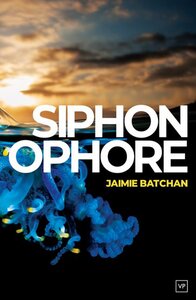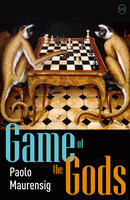This February sees the return of Reading Independent Publishers Month, hosted by Lizzy’s Literary Life and Kaggsy’s Bookish Ramblings. Independent publishers are a big part of what I read, so I should be able to join in with this fairly easily. We’ll see how it goes, anyway.
To start, I’m off to Scarborough’s Valley Press, and the first novel by Jaimie Batchan. He’s the co-host of Unsound Methods, a podcast I would recommend as it features many authors whose work is squarely in my area of interest. It came as no surprise to me discover that Siphonophore is in my area of interest, too.
Our narrator is MacGregor, marooned on the Darién isthmus (now Panama) in the 16th century following a failed attempt to establish a Scottish colony. The novel begins straightforwardly enough, with McGregor explaining how he ended up in his current predicament. He communes with his Creator – who isn’t quite the kind of being one might anticipate:
His procrastinating, for example, is noticeably absent from the scriptures. Once He becomes committed to the work he must undertake, this stalling finds a fresh set of robes in which to creep upon the earth. His time-wasting swiftly dons the attire of legitimate research. So much for omniscience. He diligently bookmarks web pages for future reference, scribbling notes in his spidery handwriting and hiding away in the ailing libraries dotted about the borough.
MacGregor is fully aware that his Creator is a 21st-century novelist. The Creator’s life and speech patterns bleed into McGregor’s narration, which ties the two timeframes together. We discover that the novelist has a rare terminal illness, and is desperate to complete his book. McGregor, in his turn, wants the writer to stay alive long enough to get him home.
This has the effect of giving a real sense of urgency to an approach that might otherwise seem just a gimmick. MacGregor and his Creator are mutually dependent on each other (like the marine organism after which Batchan’s novel is titled). Siphonophore examines their differing thoughts on living life when time is short.
Batchan’s novel creates a whirlwind of perspective that only grows more intense as language breaks down and the line between MacGregor and Creator blurs. It’s quite a ride.




Recent Comments